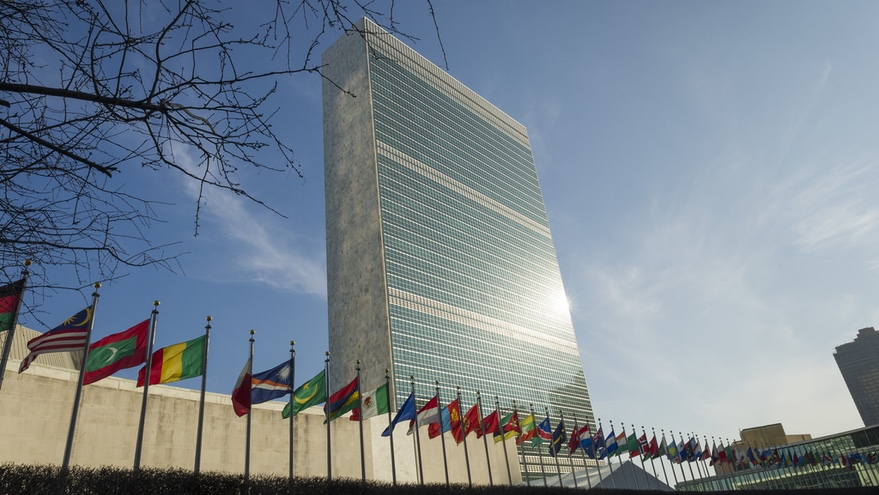NEW YORK — Despite an overwhelming vote of support by the United Nations General Assembly six months ago, advocates of a moratorium on one type of anti-satellite tests say they are still working to get more countries to adopt it.
The U.N. General Assembly approved a resolution in December 2022 encouraging countries not to conduct destructive direct-ascent (DA) ASAT tests. A total of 155 nations voted in favor of the resolution while nine, including China and Russia, voted against it. Nine other nations, including India, abstained.
“That kind of vote count indicates a very strong base of support,” said Audrey Schaffer, director of space policy at the National Security Council, during a June 13 presentation at the Secure World Foundation’s Summit for Space Sustainability here.
However, she noted that the resolution was non-binding. “It doesn’t commit states to the norm. It encourages states to make national commitments to this norm,” she said. “To truly establish an internationally recognized norm banning destructive DA-ASAT missile testing, we need a critical mass of nations to actually make the commitment.”
So far, 13 nations have made that commitment, most recently Italy in April. “Our work in curtailing these irresponsible acts is not finished,” she said. “We have to continue the drumbeat of nations making commitments to this emerging international norm.”
The United States was the first to commit to no longer conduct destructive DA-ASAT tests in April 2022, five months after Russia conducted such a test, destroying the defunct Cosmos 1408 satellite and creating thousands of pieces of debris. Vice President Kamala Harris, who announced the ban, encouraged other nations to make similar commitments.
The first to join the United States was Canada in May 2022. “It is simple to recognize. It is easy to attribute. Given that it’s very detrimental, this was one of the top threats that needed to be addressed,” Maryse Ducharme, special advisor on space for Canada’s Department of National Defence, said of Canada’s decision to adopt the test ban, during a conference panel June 14.
She agreed that more nations need to make similar commitments. That could, she said, lead to a legally binding international ban on such tests, which she said Canada would support.
Hyerin Kim, second secretary in the disarmament and non-proliferation division of South Korea’s Ministry of Foreign Affairs, said in a June 14 conference speech that discussions like those held by a U.N.-chartered working group on reducing space threats helped create a “whole-of-government common understanding” on the dangers posed by destructive direct-ascent ASAT tests. South Korea formally committed not to conduct such tests in October 2022.
Kim said South Korea was pleased 155 nations voted in favor of the U.N. resolution in December. “We understand that other states that voted for the resolution but have not yet joined the commitment need some time to thoroughly review the domestic effects” of such a commitment, she said. “Korea is also making efforts to raise awareness of the danger posed by ASAT testing.”
While some work to get more countries to commit not to conduct destructive DA-ASAT tests, others are looking to go further. “These are wonderful first steps, but we must do more as a community to work towards a ban on all ASATs,” said Mark Mozena, vice president of government affairs at Planet, which operates hundreds of satellites at risk from orbital debris, during a June 13 talk.
He said an overall ban would address criticism that a moratorium does not hurt the United States, having previously tested ASATs. “We can push past this criticism by pushing for binding international agreements to ban all debris-creating activities and weapons and not just limit the testing of those systems,” he said. “We need to move to a prohibition and not a voluntary moratorium. Working towards an international prohibition to ban all use of kinetic ASATs is a worthwhile goal which will help protect space for generations.”
